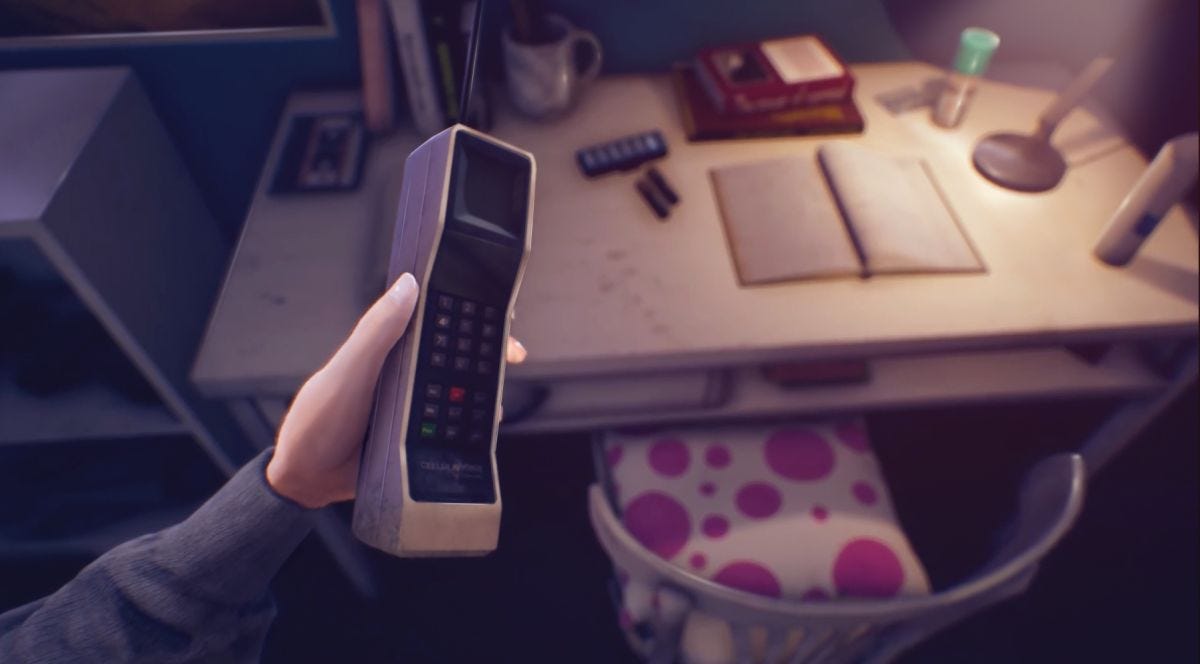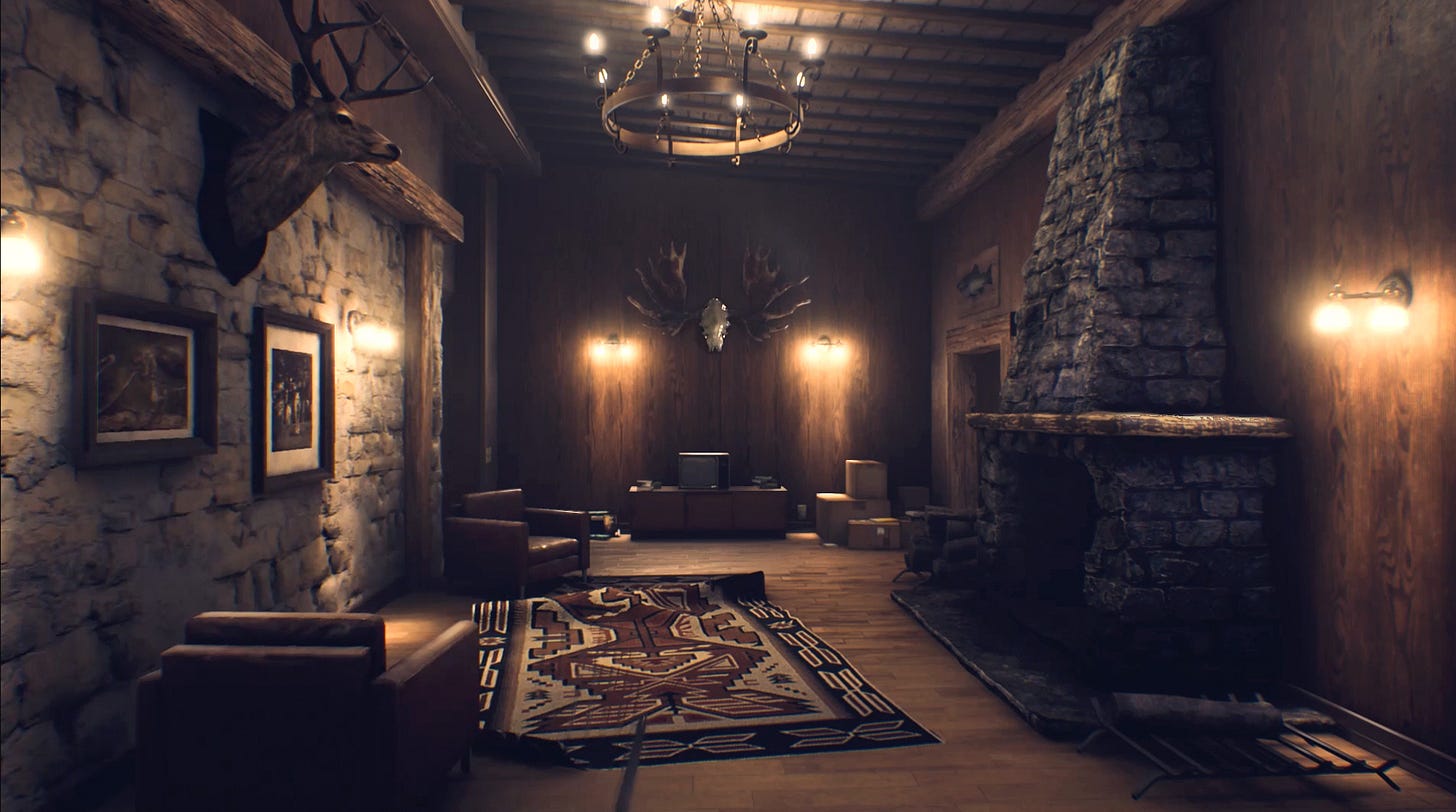Let's just agree to not play "The Suicide of Rachel Foster"
Originally published for Catholic News Service September 26, 2020
Hauntingly realistic visuals and simple game mechanics aren’t enough to save "The Suicide of Rachel Foster" (Daedelic Games) from a poorly devised story and abysmally flawed morality. This particular walking simulator horror title compounds tragedy on top of tragedy and due to themes of suicide, homicide, and sexual violence towards minors, it is not recommended for any audience.
After the death of her father, Nicole (voice of Kosha Engler) returns to her family’s hotel, the Timberline, in order to get the property ready for sale. She and her mother fled in 1983 after Nicole’s father, Leonard (voice of Mark Hanna), impregnated Nicole’s 16-year-old friend Rachel who subsequently died by suicide. Ten years later, an intense winter storm traps Nicole in the Timberline for days with only the disembodied voice of a FEMA agent for company, ultimately forcing her to confront the truth of her family’s past.
From the beginning, it is easy to see where the game’s influences come from, such as the famous Stanley Kubrick film "The Shining," Campo Santo’s award-winning game "Firewatch," and The Fullbright’s Company critically appraised game "Gone Home." Unlike these three successful titles, however, "The Suicide of Rachel Foster" falls short when it comes to the storyline, which is the most important element of any interactive game.
Nicole spends nine days trapped in the Timberline and begins to piece together the true events from 1983. She finds old letters and documents from her parents or Rachel, along with other hidden clues throughout the property.
The first half of the gameplay possesses some interesting mechanics that heighten suspense, such as using only the flashbulb of an old Polaroid camera as the light source once the power goes out, but fails to maintain any momentum regarding tension.
One of the game’s most disturbing failings is its attempt to portray the relationship between Rachel and Leonard as one that is pure and romantic rather than one that is abusive and illegal, where an adult man groomed and abused a teenage girl starting at the age of 15. In a letter written to Nicole, the mother calls Leonard a "pedophile" but Nicole herself shrugs this off as "slander."
The topic of suicide is not handled with any sense of compassion for the characters or for players who might have real-world exposure to such a tragedy. Suicide is depicted as an escape or even a punishment rather than a very real disease. Depending on the choices that Nicole makes, up to two other characters can die by suicide.
Catholics know from the Catechism of the Catholic Church (CCC 2280-2283) that the act of suicide is a grave sin "gravely contrary to the just love of self" and “contrary to love for the living God;” but that there are circumstances which can affect culpability: "Grave psychological disturbances, anguish, or grave fear of hardship, suffering, or torture can diminish the responsibility of the one committing suicide." While there used to be fears that dying from suicide guaranteed a permanent loss of Heaven, the Catechism states, "We should not despair of the eternal salvation of persons who have taken their own lives. By ways known to him alone, God can provide the opportunity for salutary repentance."
"The Suicide of Rachel Foster" offers no mercy or compassion to those who have died by suicide and uses it so frequently as a plot device that it’s almost designed to kill any sympathy for the sufferer. Combined with the defense of a pedophile who groomed a teenage girl for an abusive relationship, no amount of talented voice actors or graphic artists can redeem such a game. Players are advised to skip out on this failed horror title and look elsewhere for chills and thrills.



